Lanterns of the Past Find a Home in the Present
Imagine life in America in the middle of the 19th century: We were decades away from getting electricity in homes, and many people lived in rural areas that were plunged nightly into near-total darkness. Back then oil and kerosene lamps and lanterns (typically a lantern has a handle and a lamp does not) were for survival and comfort. Without them the work day ended at sunset. With them people could more easily handle middle-of-the-night livestock emergencies or, if they had any energy left after working a grueling day without the amenities modern people take for granted, they could even read a book.
Although some manufacturers added decorative flourishes to the light fixtures, people of that time probably didn’t consider them endearing — especially when performing the onerous task of cleaning a sooty glass chimney.
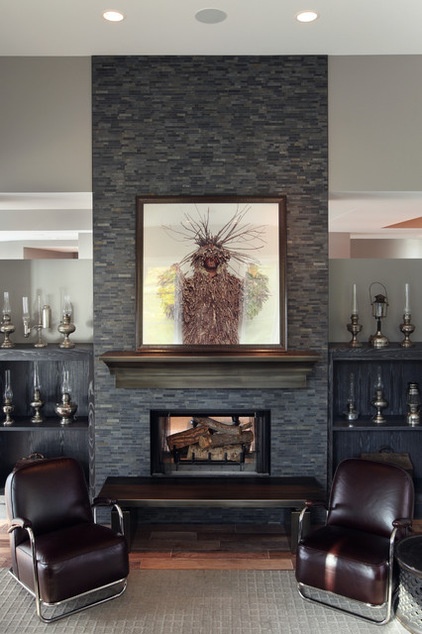
But as the years have removed us from the hardscrabble past, many find something charming about the lights. Homeowners are collecting them and even wiring them to re-create the warm glow our ancestors needed and enjoyed.
The owners of this home (by Visbeen Architects) in Grand Rapids, Michigan, have an impressive display of oil lamps with silver metal bases. Although lamps and lanterns come in different shapes and sizes, almost all of them traditionally had these basic parts: a container for fuel, an adjustable wick and a glass chimney.
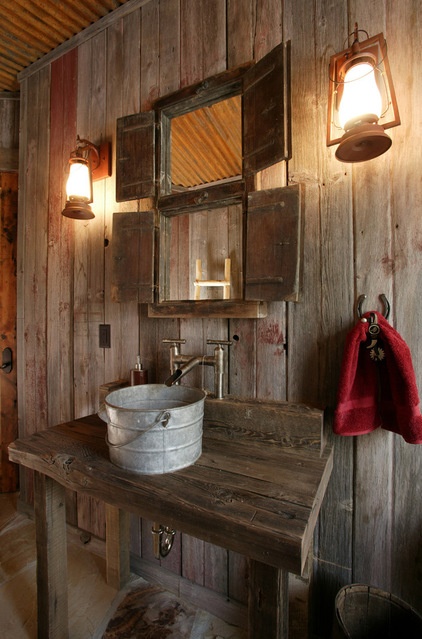
This Denver bathroom, by Lynne Barton Bier of Home on the Range Interiors, has modern sconces made to look like old kerosene lanterns. The traditional benefit of a lantern was that its sturdy metal construction, flame shield and handle made it safer and easier to transport during those midnight barn runs.
Sconces: Old California Lantern Company
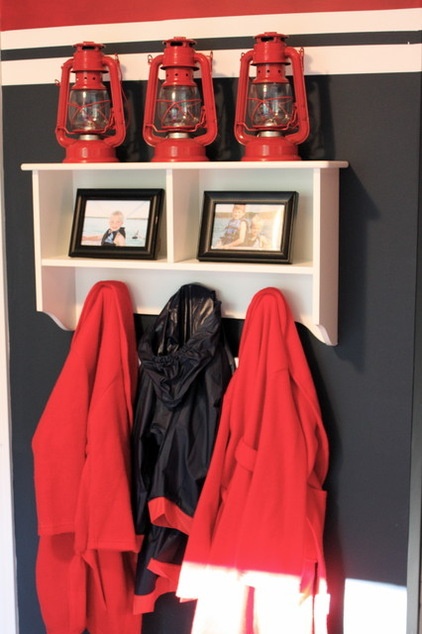
This row of little red metal lanterns shows the more lighthearted side of decorating with them, in a room by Sarah Macklem of The Yellow Cape Cod.
Although many mass-market merchants have produced purely decorative copies of these pieces, the designer says these are real oil lanterns she bought at her local hardware store.
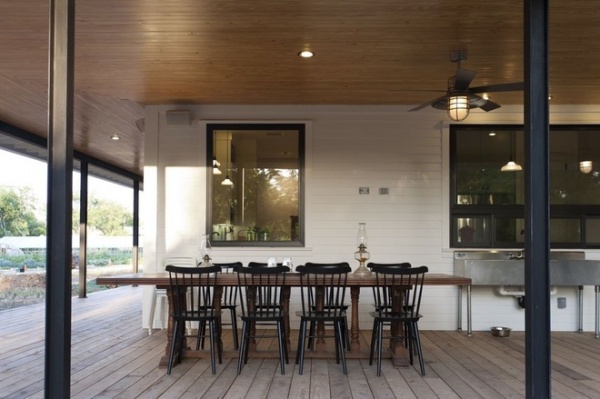
There’s something so evocative about the oil lamp placed on this long table sitting on the porch of a Texas farmhouse, created by Risinger Homes. It calls to mind Grant Wood’s iconic painting “Dinner for Threshers,” only al fresco.
See more of this house
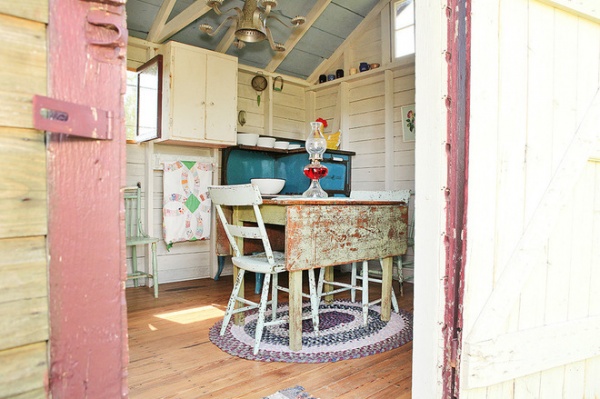
The interior of Emma Lyndaker’s converted grain shed in Ohio also features a lamp on the table. The space, which serves as her backyard retreat, doesn’t have electricity, so perhaps she uses the lamp occasionally. Whether it’s in use or not, its sculptural form and punchy red fuel add something to the space.
Read more about Lyndaker’s converted grain shed
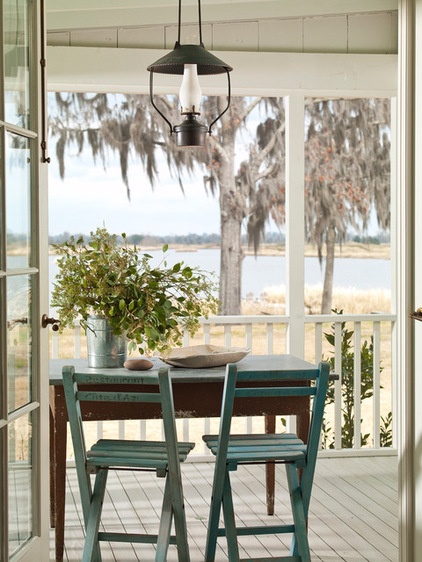
Some oil lanterns of old were crafted as hanging fixtures to cast a broad pool of light over a room. In this project by Historical Concepts in Atlanta, a handcrafted light by Georgia’s Eloise Pickard serves the same purpose. The artist uses salvaged parts from old lanterns to make electric light fixtures.
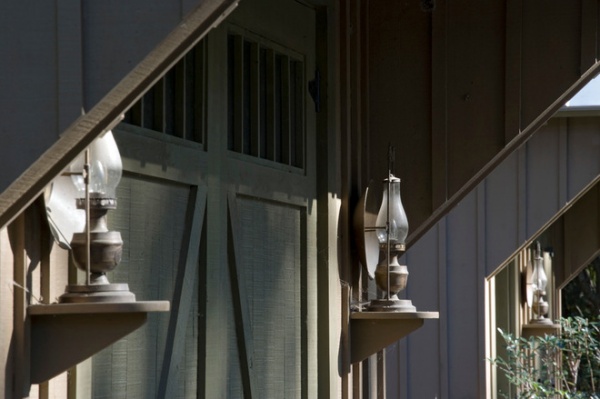
These elevated lamps have reflectors behind the chimney — in the old days, the more light you could wrest from a flame, the better. However, these lamps are perched outside of a brand-new building in Spring Island, South Carolina, designed by Historical Concepts. The goal was to make the building look like an old horse barn, and to heighten the illusion, designers outfitted the building with details they say are “playful and quirky.”
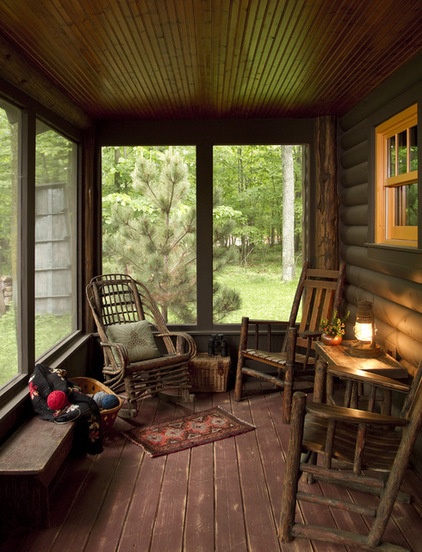
The soft light of the lantern on this porch, by Lands End Development, shows the appeal of the vintage look. Although the stark practicality of the fixtures has dimmed (they were all but abandoned when electricity became widespread), their nostalgic resonance burns brightly.












